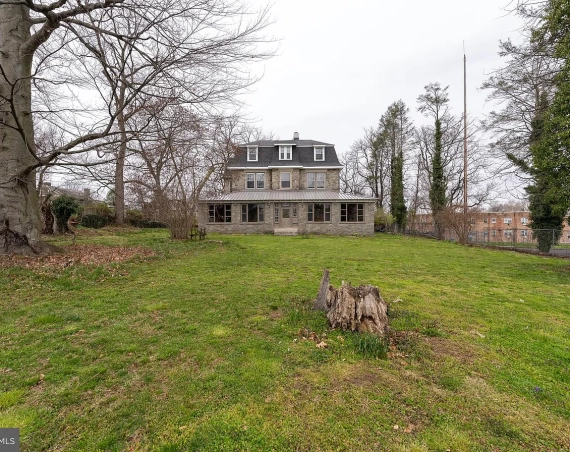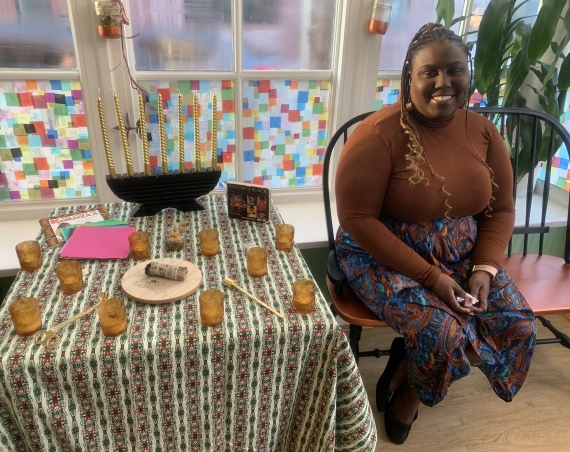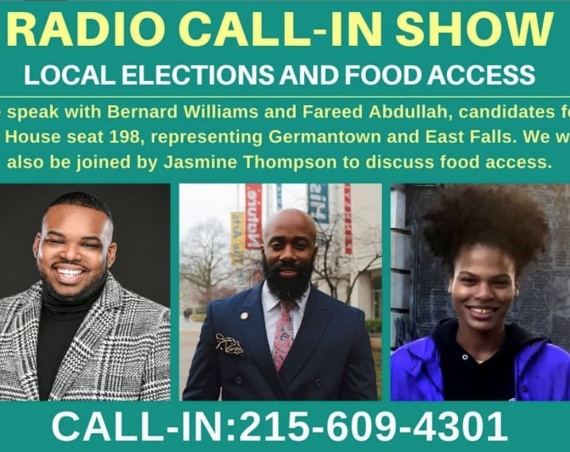The Safe City Boys program, designed and managed by the non-profit Philly Truce, trains young men to become Philadelphia’s peer resource force by employing conflict resolution skills. The ultimate goal for the program’s creators is to have Safe City Boys in every public school as visible role models in the educational process. This week, cohort leaders and Philly Truce co-founders Mazzie Casher and Steven Pickens roll out the program in Germantown.
Assessing conflicts, asking restorative questions, and anger coaching are all parts of the conflict de-escalation tools designed to support the students serving as mediators for their classmates and neighbors. Providing learning opportunities at this age and stage wasn’t an accident. After researching young mindsets, Casher and Pickens concluded that peer-level support was the best way to harvest peace and seed a new generation of community leaders.
“We have learned how these young people tend to think [that] anytime they go outside of the peer level for help with a situation is considered snitching,” says Casher. “It’s like the teacher might as well be the cops. So we try to get around that by giving them an identified person on their level.”
The Safe City Boys mission is in complete alignment with the original mission of the Philly Truce app, which connects Philadelphians with knowledge of potentially violent conflicts in direct, 24/7 contact with trained mediators. It’s a program designed to encourage communities to talk it out and engage in conflict resolution as a preventative measure before turning to the police for assistance as an intervention method.
Pickens adds: “If we’re not going to talk to the police, we have to talk to each other or come together, organize on some level as a people in the community. What’s happening right now are things that people in the community didn’t tolerate before. And that’s [what] we’re losing at.”
Along with skill-building to develop peer mediators, the cohort leaders instill community engagement and service in the young men, so you may see them in your neighborhood doing their Peace Patrols or street cleaning. Casher says:“[We are] just really trying to turn these guys into leaders, give them experiences and perspectives where they can actually feel confident that they have something to offer that the next kid may not.”
But these emerging leaders do not learn and skill-build in a concentrated area – they are moved around the city to enhance the skills they receive by learning to adapt to and experience new parts of the city.
“We are moving them around through the different neighborhoods as a part of awareness and confidence building,” says Casher, speaking about why the program appears in a different neighborhood weekly. “Some guys never leave their four-square blocks. Some guys never go downtown… and that gives us a way to be in the impact of communities and let the people in those communities see what’s available.”
And while the cohort stays the same, the public is encouraged to come out and participate in this event, as it shows support for the young men stepping up to take the initiative for community change and allows the guests to engage in an exchange of information. Casher says, “[Participants can] probably learn something [themselves] or share something with us that we don’t know and [other participants] don’t know.”
While open to the public, Steven and Pickens emphasize that the primary focus is on young Black men because, as Black men, they recognize a widespread dilemma in the Black community that they call the “manhood crises.”
As explained by Casher, the manhood crisis is described as a gap between the vast amounts of women in the community who come forward for service opportunities versus the lack of men. Casher expands on the idea, saying, “If I put a call out for a conflict-resolution clinic or class, I can get 20 women and two men. Why, if I directly say, ‘men, come out and help these boys,’ I have women running up on me and saying, ‘where is the Safe City Girls?’”
Casher and Pickens hope the Safe City Boys initiative will close that gap and more men will attend these sessions around the city to support the program’s young leaders. Pickens says more participation from community men can help “break the cycle.”
The Safe City Boys initiative arrived in Germantown yesterday at the Joseph E. Coleman Library at Greene & Chelten and leaves after Wednesday’s session, taking the Safe City Boys next to the Nicetown-Tioga section of Philadelphia. Sessions will start at 4 p.m. and end at 6 p.m. If you can’t make it to Germantown’s sessions, folks are welcome to attend others in the future around the city. You can visit Philly Truce’s website for information on the initiative and other session dates and locations.
Pickens says city residents can also expect improvements to their app, as they have been working to improve and provide it as one of the essential tools to equip their Safe City Boys with as they find new paths to solving conflict.



